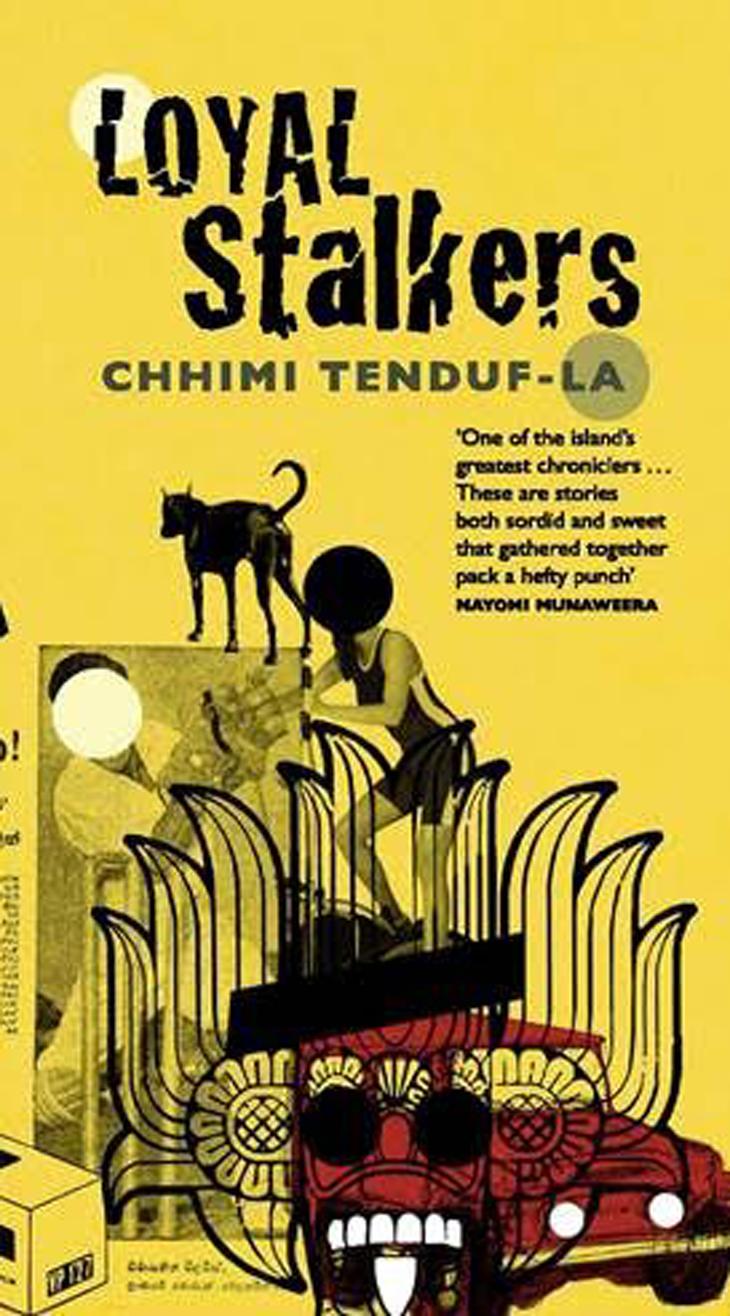X walks into arc of Y: How Pulp Fiction found its way into Chhimi Tenduf-La's storybook

Those stories of their lives: This could probably be a rather apt way to describe Chhimi Tenduf-La's Loyal Stalkers. It takes you back in certain ways to Kavery Nambisan's A Town Like Ours, but Tenduf-La's book goes beyond the borders. It is no longer a little-town feeling. It is the country.
It is an ease of life (or the lack of it) that gives readers a feeling that Loyal Stalkers could have been placed anywhere. But the salty sea breeze, the smattering of Sinhalese and bits of Tamil, that craze for cricket, a heady whiff of arrack and an insatiable longing for life – makes it uniquely Sri Lankan.
The best thing about Loyal Stalkers is its library of people. Wonderfully crafted characters that walk in singularly with their stories and then reappear perhaps as a face in the crowd gathered around a road accident, a person working out on the next treadmill or a guy who walks in with his son to buy a swanky birthday treat he can hardly afford.
The characters surround you and form a maze of stories, agendas and feelings. But you are never blindsided. They walk in as silently and with as much respect as they walk out.
At the end of it all, when you close the book, a tangible form takes its place. Loyal Stalkers is not one story and there is no over-arching idea except, perhaps, one – this is the Sri Lanka that you peep out of your window and spot on any given weekday.
And much like that any given weekday, things will make you frown, swear in anger and others that will make you smile.
Stories like Sending a Night Breeze, My Fair & Lovely Lady, Help, Help have a despondent ache about them while those like White Knight and Devil Mask Tattoo make you want to scream.
My favourite story was – Everyone Has to Eat. It is a story that made me smile and that hasn't happened in a while.
And of course, we wanted to know the author's favourite. But, before that, here's what else we asked Chhimi Tenduf-La:
Jhinuk Sen (JS): First up, how you came about with the idea of this book. The incredible plan of putting little bits of other characters from other stories in to a story that has little to directly do with them?
Chhimi Tenduf-La (CT): I always remind myself that something I might worry about would be of little or no concern to other people. This goes the other way too; if someone harps on about their problems, my instinct is to say, well it’s not the end of the world is it? This is the basis for these stories; in each one, the main character has some issue they have to deal with and it is huge to them, but when they pop up in another story it is not the focus of attention. So I hoped that these stories would mimic life.
I have not read a collection of stories which does this, but I am sure there must be some out there. Instead, I was inspired by movies such as Pulp Fiction and Robert Altman’s Short Cuts. I loved watching primary characters in one story arch becoming secondary in another.

JS: Where did you get these stories from? We promise we won't go looking because we want you to write more.
CT: In some cases, I just Googled true stories in other countries and then mashed up a few of these things into a Sri Lankan setting. Mostly though, I started with a character, like the gym instructor, based on someone I know and then I built a story around him. I also always wanted to write about a stalker from his point of view – which has been done before. Where this is different is the victim never knows she is being stalked.
JS: What do you think the world is missing when it looks at Sri Lanka now? What do you think is missing from the books that have already been written about the country?
CT: Like other Asian countries, there is a lot that happens here that is not spoken about. This is what the first story in my collection is about. Avoiding shame to a generation of Sri Lankans is more important than anything else.Right now people in some areas have been devastated by floods and the outpouring of generosity is immense. Supermarket shelves are empty because people have gone out and spent all their money on rations for the people affected. Yet it has not escaped people’s notice that it takes
Right now people in some areas have been devastated by floods and the outpouring of generosity is immense. Supermarket shelves are empty because people have gone out and spent all their money on rations for the people affected. Yet it has not escaped people’s notice that it takes tragedy to bring different communities together. Sri Lankans are also incredibly generous with unsolicited advice and comments about your weight etc. This all adds to the rich fabric of what it is to experience the country. If you live here for a few years, it is bloody difficult to leave.
Because the war played such a large part in our recent history, a lot of fiction centres around it. Yet, Sri Lankans are such great story tellers I would urge people from other countries to read books about other aspects of Sri Lankan life – the positive and the negative. It is such an amazing place; so diverse, so beautiful, so crazy in some ways that it makes for great fiction.
JS: About the gay community in Sri Lanka – under-represented, mis-represented?
CT: Mothers want their sons to be the most eligible bachelors around, and being gay does not fit into that narrative. It’s very evident on social media that some people have still been brought up to think that it is a sin to be gay. Having said that, things have changed enormously since I was young. I work at a school where we once invited a gay man who had AIDS to address our students. I was worried about how well this would be accepted, but it touched us all enormously when a group of students went up to this man at the end of the assembly and hugged him.
I will admit, when I was at school, I would not have been compassionate or mature enough to have done this. I think the older generation have a lot to learn from the young people of today, particularly in this country. The young do not want to live with the prejudices that led to war.
JS: Probably the toughest question - which is your favourite story and who is your favourite character and why?
CT: In Loyal Stalker, although the main character is an absolute creep, there is something very likeable about him. This is the kind of character I love to write; either a good person who does something bad, or an awful person who has redeeming qualities. We all make mistakes; we all have reasons for the bad things we may have done and in this book, I hope one story may explain the characters’ mistakes in another. Sure, none of us have broken into a house and slept under someone’s bed without them knowing, but the guy is also incredibly loyal, loving and protective.
JS: What's next for Chhimi Tenduf-La? A slight rewind - how did he start writing and what brought him here? What would he be doing if he wasn't writing?
CT: What would I be doing if I wasn’t writing? Probably drinking. I have always written, but before I got married and had kids, I used to enjoy a good night out. After a good night out, I did not enjoy writing as I was too busy nursing a hangover and worrying about whether I had unleashed my dance moves; moves that had been officially banned since the mid '90s. I never go out at night now because I can’t bear to leave my kids – when they go to sleep I have all that extra time to write and edit.
I have a day job too, but more than anything else, writing or not writing, I just consider myself a father. It is what I enjoy most, what I think I am best at and what I feel most fortunate to be.
What’s next? I started a crime thriller which was so creepy I started getting scared of my own reflection. I have put that on hold, because I am quite busy annoying people into buying Loyal Stalkers. It’s not a bad time to take stock and see how things go so I can decide whether to flesh this story into a novel, or do another collection of linked short stories.
First published: 3 June 2017, 17:31 IST






![BJP's Kapil Mishra recreates Shankar Mahadevan’s ‘Breathless’ song to highlight Delhi pollution [WATCH] BJP's Kapil Mishra recreates Shankar Mahadevan’s ‘Breathless’ song to highlight Delhi pollution [WATCH]](https://images.catchnews.com/upload/2022/11/03/kapil-mishra_240884_300x172.png)

![Anupam Kher shares pictures of his toned body on 67th birthday [MUST SEE] Anupam Kher shares pictures of his toned body on 67th birthday [MUST SEE]](https://images.catchnews.com/upload/2022/03/07/Anupam_kher_231145_300x172.jpg)






